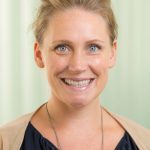Author Perspectives
Each author shared their perspectives on what they hope readers will get from engaging with this handbook. Read on for these author perspectives, which share a common thread that uncertainty is an element of all health professions.
The chapters that each other contributed to both in writing and the peer review process are also noted below (links open in a new window). For more about each author, please see the author bios at the conclusion of their chapters in Section 3.
Professor Zubin Austin BScPhm MBA MISc PhD FCAHS
 For the chapter on Uncertainty in Pharmacy, I hope readers will appreciate how the rapid evolution of the pharmacy profession towards a more clinical, patient-focused role requires educators to use new teaching and learning methods focused on managing cognitive and emotional stress. As a researcher and educator, I have focused on these approaches for many years, to help learners prepare for the demands of clinical decision making under information-imperfect conditions. As a reviewer for the Nursing chapter, it is striking for me to note similarities across all health professions with respect to management of cognitive and emotional stress associated with clinical decision making, and highlights the importance of this kind of resource for all educators, regardless of discipline.
For the chapter on Uncertainty in Pharmacy, I hope readers will appreciate how the rapid evolution of the pharmacy profession towards a more clinical, patient-focused role requires educators to use new teaching and learning methods focused on managing cognitive and emotional stress. As a researcher and educator, I have focused on these approaches for many years, to help learners prepare for the demands of clinical decision making under information-imperfect conditions. As a reviewer for the Nursing chapter, it is striking for me to note similarities across all health professions with respect to management of cognitive and emotional stress associated with clinical decision making, and highlights the importance of this kind of resource for all educators, regardless of discipline.
Dr. Liza Barbour BND, MPH, PhD
 I hope this book will support educators to embrace opportunities to foster uncertainty tolerance amongst learners and colleagues, as a tool to prepare our future health workforce to address the significant global challenges they face. I co-authored the Nutrition chapter and peer reviewed the Planetary Health and Evidence-Based Practice chapters.
I hope this book will support educators to embrace opportunities to foster uncertainty tolerance amongst learners and colleagues, as a tool to prepare our future health workforce to address the significant global challenges they face. I co-authored the Nutrition chapter and peer reviewed the Planetary Health and Evidence-Based Practice chapters.
Dr. Gitanjali Bedi Grad Dip (IntDevelopment), Grad Cert(SusEd), MA(CorpEnvSusMgmt), FHEA

I hope our Planetary Health chapter will provide readers with useful insights, opportunities for reflection and new possibilities for varied pedagogical approaches through learning about planetary health from First Nations’ knowledge.
Professor Gabrielle Brand BN, MN (Research), PhD, SFHEA

I hope that our chapters (Planetary Health & Nursing) encourage educators to be open, adaptive, reflective and trial new and creative pedagogies (even at the risk of failure) to enhance tolerance of uncertainty. This will ensure our future healthcare professionals and science graduates are armed with key capabilities to not only navigate and respond to an ever-changing health care environment but provide more humanistic care for a thriving community.
Professor Tina Brock BSPharm, MS, EdD FFIP

I wanted to be part of this project because it was a chance to work with a diverse group of interesting people who have “embraced the grey” of health professions education. I hoped that if we shared widely that even master teachers have episodes of discomfort almost every day it would help normalise this for novice teachers. In authoring the Pharmacy chapter and reviewing the chapter on Radiation Therapy and then peeking around into a few others, I am compelled by how alike various health professions are when it comes to uncertainty tolerance. Because I am trying to facilitate more collaboration and teamwork in health care, this is a shared foundation on which I can build. To learn more about one of my passions (for which uncertainty tolerance skills are required), please see this site – https://www.rxforclimate.org/
James Bonnamy MNurs

Holding multiple identities as a clinician, researcher, educator and young-onset colorectal cancer survivor, I draw upon my lived and living experiences of cancer care to inspire health professions educators and learners to embrace uncertainty, so they can improve care for those diagnosed with cancer. I co-authored the Nursing Chapter and peer-reviewed the Nutrition chapter.
Associate Professor Libby Callaway BAppSci(OccTherapy); MOT; PhD

I co-authored the Occupational Therapy chapter of this textbook, with a focus on uncertainty tolerance in occupational therapy, and peer-reviewed the Planetary Health chapter. In the Occupational Therapy chapter, I was pleased to contribute exemplar learning activities that draw on consumer co-design with people with lived experience of rehabilitation, ageing and independent living services – and interdisciplinary narrative portrait methods developed with nursing colleague, Professor Gabrielle Brand with Mr James Bonnamy (both chapter authors) – with the aim to challenge learners’ assumptions. In the words of American writer Joseph Campell, I hope that this contribution can help the learner to understand that ‘the cave you fear to enter holds the treasure you seek’ – uncertainty tolerance is aided by holding central skills of listening to and reflecting on individual experiences of health, aged and disability care, and this can assist authentic delivery of person-centred healthcare practice, which is both a gift and a treasure.
Dr. Narelle Dalwood B.App.Sc,physio, Grad Dip Neuroscience

I strongly believe that excellence in patient care relies on excellent training of our ‘future colleagues’. The transition into clinical practice can be challenging, testing the capacity of students’ knowledge, skills, confidence, perseverance and resilience. It is often a time of great uncertainty. I hope that the Physiotherapy chapter will encourage readers to consider the use of simulation, and in particular peer simulation, to challenge learners to recognise, acknowledge, navigate and manage uncertainty, thus optimising patient care.
Professor Basia Diug PhD, BBioMedSc(Hons), GCAP, PFHEA

Our aim of the Evidence-Based Practice chapter is to support readers in reflecting and critically evaluating the health information they encounter daily. This will enable readers to identify misinformation and weak evidence whilst adding their own patient values and preferences to manage their health and that of others. By applying an evidence-based approach readers are provided with a framework that helps them tackle any uncertainty and challenges they are faced with when interacting with medications, complementary medicines and health-related advice.
Dr. Melanie Farlie BPhysio, PGCPhysio, GCHPE, PhD, FHEA, FANZAHPE, APA Titled Research Physiotherapist

I hope the Physiotherapy chapter provides readers valuable insights relevant to supporting learners as they navigate uncertainty throughout a course. Specifically, how activities can be revisited with progressively increasing levels of uncertainty. Additionally, I peer-reviewed the Radiation Therapy chapter.
Dr. Bethany Howard MEd

I hope, as an author of the Evidence-Based Practice chapter, that readers will feel emboldened to innovate their assessments to reflect real-world practice and support their learners to navigate uncertainty.
Dr. Kristie Matthews BAppSci(MedRad); MTrainDev; PhD
 I hope that this work will encourage educators to intentionally incorporate strategies within their teaching to foster learner uncertainty tolerance, which will in turn equip our future health professionals to deliver high quality person-centred care. I co-authored the Radiation Therapy chapter and reviewed the Pharmacy chapter.
I hope that this work will encourage educators to intentionally incorporate strategies within their teaching to foster learner uncertainty tolerance, which will in turn equip our future health professionals to deliver high quality person-centred care. I co-authored the Radiation Therapy chapter and reviewed the Pharmacy chapter.
Dr. Julia McCartan PhD, MPH, BNutrDiet, APD

I hope that this book arms educators with practical tools and examples to build learners’ uncertainty tolerance, and fosters innovative education practices that disrupt the status quo. I co-authored the Nutrition chapter and peer reviewed the Evidence-Based Practice chapter.
Dr. Katrina Récoché
I hope that readers will use this book to be inspired to take risks and try new things in the delivery of knowledge and skills to prepare students of all health professions for the realities and uncertainties of their future practice.
Associate Professor Michael Storr BPhysio, MEd

As a co-author of the Physiotherapy chapter, I hope that this book will help decrease the uncertainty that educators can face when tackling the concept of dealing with uncertainty in health professions education!
Steve Wise B.Env.Des RBI MPhotogIII

As co-author of the Planetary Health & Nursing Chapters (featuring my collaborative fine art narrative portraits), I hope that this handbook will assist health educators and clinical staff to build effective strategies to tackle and manage the inevitable uncertainty that comes with these roles.
Associate Professor Caroline Wright DCR(T), BSc(Hons), MSc, PGCE, PhD

I hope that those who read this book will gain insight into authentic, practical and engaging peer-peer learning strategies which can assist in the preparation of students to gain confidence in identifying, navigating and managing uncertainty in their everyday practice. I am passionate about learning from others and being involved in the writing of this book has provided a perfect opportunity to learn about interprofessional approaches to supporting learners develop ways to navigate uncertainty. Caroline co-authored the Radiation Therapy chapter and reviewed the Physiotherapy chapter.
Media Attributions
- Zubin Austin © David King is licensed under a CC BY-NC-ND (Attribution NonCommercial NoDerivatives) license
- Liza Barbour © Monash University is licensed under a CC BY-NC-ND (Attribution NonCommercial NoDerivatives) license
- Gitanjali Bedi © Gitanjali Bedi is licensed under a CC BY-NC-ND (Attribution NonCommercial NoDerivatives) license
- Gabrielle Brand © Monash University is licensed under a CC BY-NC-ND (Attribution NonCommercial NoDerivatives) license
- Tina Brock is licensed under a CC BY-NC-ND (Attribution NonCommercial NoDerivatives) license
- James Bonnamy is licensed under a CC BY-NC-ND (Attribution NonCommercial NoDerivatives) license
- Libby Callaway © Monash University is licensed under a CC BY-NC-ND (Attribution NonCommercial NoDerivatives) license
- Narelle Dalwood © Monash University is licensed under a CC BY-NC-ND (Attribution NonCommercial NoDerivatives) license
- Basia Diug © Monash University is licensed under a CC BY-NC-ND (Attribution NonCommercial NoDerivatives) license
- Melanie Farlie © Jim Hsu is licensed under a CC BY-NC-ND (Attribution NonCommercial NoDerivatives) license
- Bethany Howard is licensed under a CC BY-NC-ND (Attribution NonCommercial NoDerivatives) license
- Kristie Matthews © Monash University is licensed under a CC BY-NC-ND (Attribution NonCommercial NoDerivatives) license
- Julia McCartan © Monash University is licensed under a CC BY-NC-ND (Attribution NonCommercial NoDerivatives) license
- Michael Storr © Monash University is licensed under a CC BY-NC-ND (Attribution NonCommercial NoDerivatives) license
- Steve Wise © Steve Wise is licensed under a CC BY-NC-ND (Attribution NonCommercial NoDerivatives) license
- Caroline Wright © Monash University is licensed under a CC BY-NC-ND (Attribution NonCommercial NoDerivatives) license

